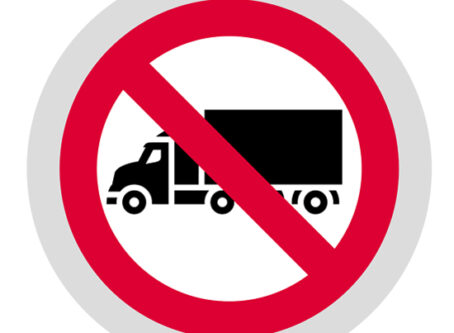Washington state House panel discusses truck driver restroom access bill
The Washington House Transportation Committee met Monday to discuss a bill to give truck drivers operating around the state assurances for access to restroom facilities.
Sponsored by Rep. Mike Sells, D-Everett, HB1706 would require a retail establishment to allow a common carrier delivering goods to the establishment access to a restroom during normal business hours. Marine terminals also are covered in the legislation.
Trucking groups weigh in
OOIDA Executive Vice President Lewie Pugh and Washington Trucking Associations President and CEO Sheri Call also testified on HB1706. Both lamented the fact the issue needs to be addressed in legislation.
“I never thought I would be testifying on why we need a regulation to allow access to a basic necessity for men and women. Unfortunately, it’s been this way for a long time,” Pugh said.
He added that the problem is not limited to ports.
“We are not asking businesses to put in new restrooms. We are just asking for the rights to use the restrooms they already have. To me, this is common sense.”
Call said the bill represents a plea from truck drivers to have the same accommodation an establishment would offer a visitor to their facility.
“This bill simply asks businesses to take care of the people who take care of them.”
Independent truck driver and OOIDA Board Member Tilden Curl of Olympia, Wash., provided written testimony to the committee.
Curl told legislators the bill addresses basic human needs.
“I cannot adequately express to you the feeling of needing to use the restroom and be rejected because you are a trucker,” Curl wrote. “Oftentimes, truck drivers will drive for several hours just to meet a delivery obligation and then be refused the right to relieve themselves.”
He added that truck drivers are not seeing real-world application of the gratitude that many claim to have for their efforts.
“Two years ago, truck drivers were elevated to hero status for continuing to supply necessary goods to our nation. During that time we had many challenges, including finding a place to eat and park,” Curl wrote. “It was very dehumanizing to work through all the challenges to get the freight to its destination and then be refused a restroom visit. It felt like going from hero to zero many times throughout the day.”
What does the legislation cover?
Affected retail establishments are defined as “a place of business open to the general public for the sale of goods or services.”
Restrooms are defined as “a bathroom facility on the premises of, and operated by, a retail establishment” that is intended for use by customers or employees.
Two conditions must be met.
- The restroom must be in an area where providing access would not create an obvious health or safety risk to the user.
- Allowing the user to access the restroom does not pose an obvious security risk to the retail establishment or its employees.
Retail establishments that fail to follow the rule could face a $125 fine.
Sells told committee members the retail establishment provision is under review to see whether restroom access is already covered in other areas or statute.
“If there’s an existing requirement that requires retailers and ports to let truck drivers use their restrooms, it is failing miserably,” OOIDA Director of State Legislative Affairs Mike Matousek told Land Line Media
Access to restrooms at marine terminals also covered
Terminal operators would be required to provide “a sufficient number of restrooms” for use by drayage truckers in areas of the terminal that operators typically have access. Areas covered in the legislation include inside the gate and truck queuing lots.
Restrooms could include fixed bathrooms or portable toilets.
Terminal operators would be in compliance with the rule when a policy is in place to allow drayage truckers to leave their vehicles at “reasonable times and locations” for purposes of access restrooms.
Facilities must be in areas where access would not pose an “obvious health or safety risk” to the user.
Drayage truck operators accessing the terminal for the purpose of loading, unloading, or transporting cargo would be covered by the rule.
The department of health and the local health departments or divisions of each county would jurisdiction to enforce the rule.
Sells said action is necessary to address concern about access to restrooms.
“It would seem to me that logic would determine that this would already be handled, or taken care of, but evidently not. So, it is requiring us to step up and take some kind of action around this particular issue,” Sells testified.
HB1706 was held in committee for further consideration. LL
More Land Line coverage of news from Washington.









